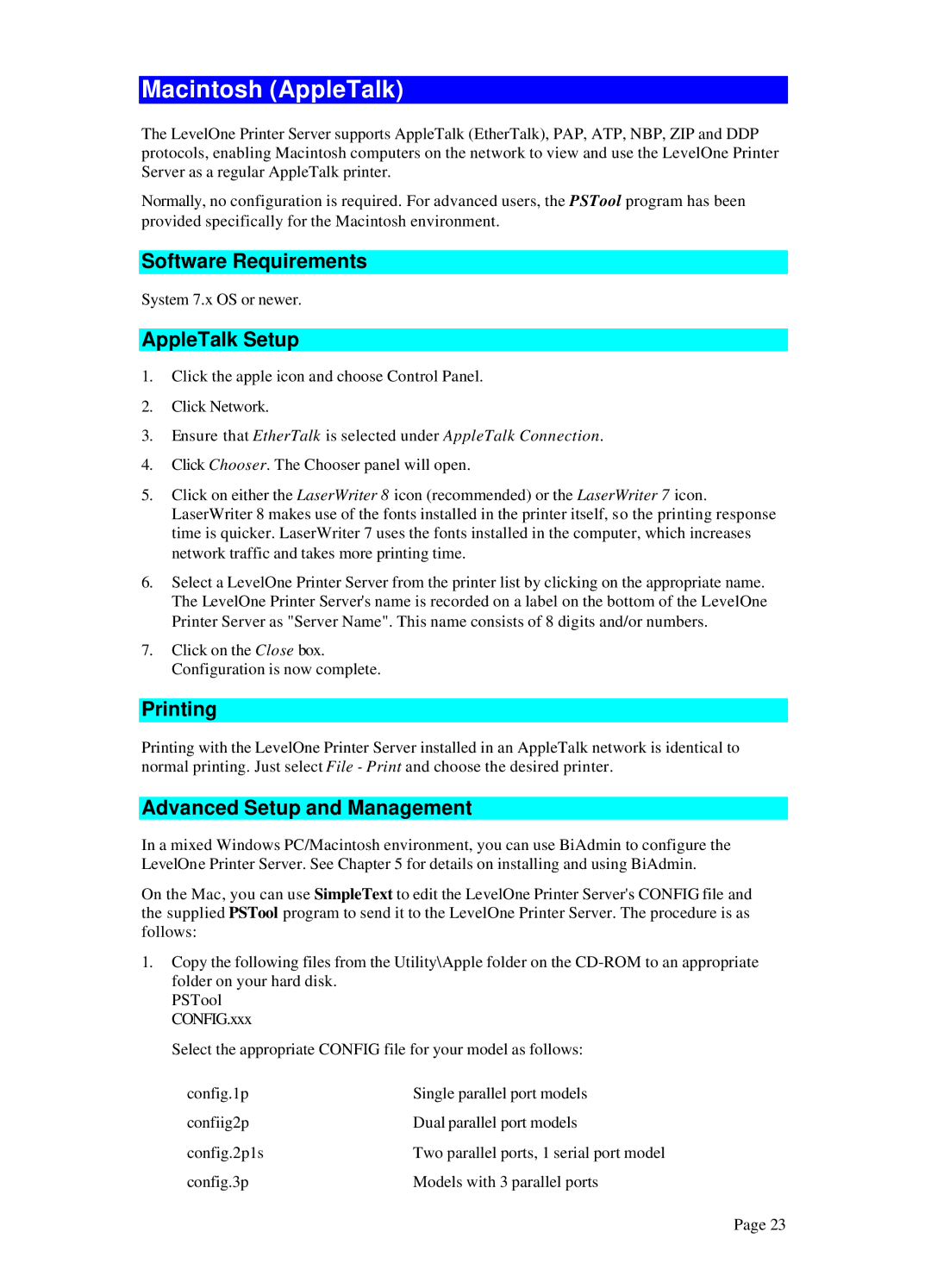
Macintosh (AppleTalk)
The LevelOne Printer Server supports AppleTalk (EtherTalk), PAP, ATP, NBP, ZIP and DDP protocols, enabling Macintosh computers on the network to view and use the LevelOne Printer Server as a regular AppleTalk printer.
Normally, no configuration is required. For advanced users, the PSTool program has been provided specifically for the Macintosh environment.
Software Requirements
System 7.x OS or newer.
AppleTalk Setup
1.Click the apple icon and choose Control Panel.
2.Click Network.
3.Ensure that EtherTalk is selected under AppleTalk Connection.
4.Click Chooser. The Chooser panel will open.
5.Click on either the LaserWriter 8 icon (recommended) or the LaserWriter 7 icon. LaserWriter 8 makes use of the fonts installed in the printer itself, so the printing response time is quicker. LaserWriter 7 uses the fonts installed in the computer, which increases network traffic and takes more printing time.
6.Select a LevelOne Printer Server from the printer list by clicking on the appropriate name. The LevelOne Printer Server's name is recorded on a label on the bottom of the LevelOne Printer Server as "Server Name". This name consists of 8 digits and/or numbers.
7.Click on the Close box. Configuration is now complete.
Printing
Printing with the LevelOne Printer Server installed in an AppleTalk network is identical to normal printing. Just select File - Print and choose the desired printer.
Advanced Setup and Management
In a mixed Windows PC/Macintosh environment, you can use BiAdmin to configure the LevelOne Printer Server. See Chapter 5 for details on installing and using BiAdmin.
On the Mac, you can use SimpleText to edit the LevelOne Printer Server's CONFIG file and the supplied PSTool program to send it to the LevelOne Printer Server. The procedure is as follows:
1.Copy the following files from the Utility\Apple folder on the
PSTool CONFIG.xxx
Select the appropriate CONFIG file for your model as follows:
config.1p | Single parallel port models |
confiig2p | Dual parallel port models |
config.2p1s | Two parallel ports, 1 serial port model |
config.3p | Models with 3 parallel ports |
Page 23
